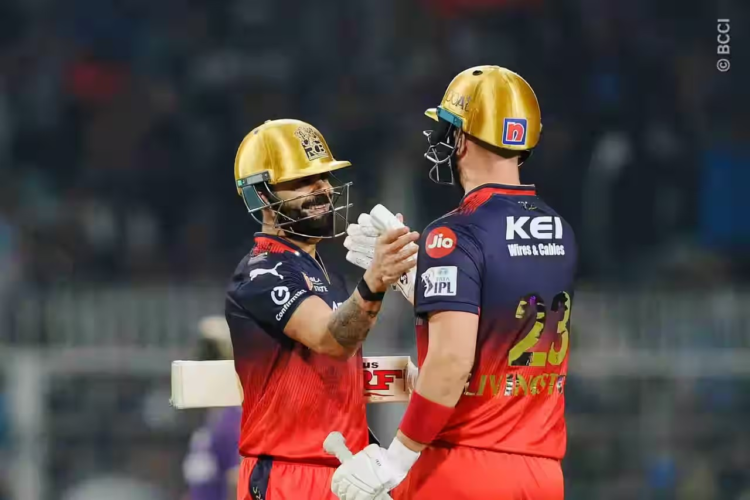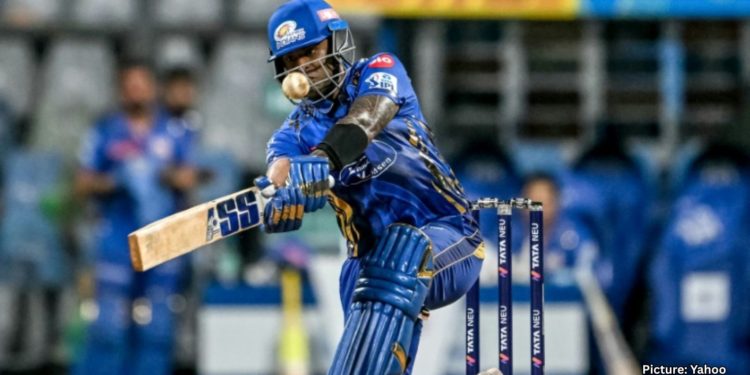RCB Bengaluru secured a seven-wicket victory against KKR as they finished with a final score of 177 for 3. This win was made possible thanks to Kohli’s unbeaten 59, Salt’s impressive 56, and Patidar’s contribution of 34 runs. KKR, on the other hand, ended their innings at 174 for 8, with Rahane leading the way with his score of 56 and Narine adding 44 runs. However, it was RCB’s bowlers who shined, with Krunal taking three wickets and Hazlewood picking up two.
The latest IPL season, following the mega auction, is creating excitement as new partnerships and team affiliations are formed. RCB will be pleased with their recent signings, as they played a significant part in their impressive opening performance against KKR, the current champions.
Hazlewood utilized the spongy bounce at Eden Gardens to disrupt KKR’s initial and final overs strategies, finishing with a solid analysis of 4-0-22-1. In a spell lasting 4 overs, Krunal Pandya put an end to Rahane’s aggressive half-century with impressive figures of 4-0-29-3. Despite a lackluster performance, Suyash Sharma managed to redeem himself with a crucial wicket – that of Andre Russell. Phil Salt further diminished KKR’s chances with his strong knock of 56 runs off just 31 balls. Kohli, known for his consistent appearances at RCB, then sealed the deal with his own score of 59 off 36, ensuring victory for his team with a whopping 22 balls still remaining in the chase for 175 runs.
Renowned for defying norms, KKR played it safe with their leadership decision after the auction. Rahane, the batsman, will have to quell uncertainties on a regular basis, but he had a solid beginning as he and Sunil Narine hammered 98 runs between overs four and ten. Still, KKR were dominated for the most part of the evening except for those seven overs.
KKR is facing concerns about Hazlewood’s height.
In just two overs, which make up 10% of the T20 innings, Hazlewood showed his worth for RCB at the auction after being unavailable last IPL. Despite a long injury break, he returned with his signature hard length, good pace, and extra bounce. This was evident when he caused Quinton de Kock to be dropped in the first over before dismissing him on the next delivery. He also had Narine struggling in the third over.
Rahane begins to move, with Narine in pursuit.
Although RCB initially supported Rahane, he proved his batting abilities with a determined innings even as Narine struggled to adjust to the pitch’s unpredictable bounce. Rahane consistently hit straight balls from RCB over the leg side, earning all 30 of his first runs there. Once Narine joined in on the aggressive play, their slow start became a distant memory.
A pivotal moment occurred when Narine took on his ex-teammate Suyash, known for outsmarting batters with his leg spin. Despite this, Narine repeatedly targeted the off side as 22 runs were scored in the ninth over.
Krunal spearheads RCB’s resurgence.
KKR had a score of 107 for 1 after 9.5 overs when Narine attempted to hit Rasikh Salam towards the off side, but was caught off guard by the extra bounce. Until this moment, RCB had limited options, but were able to rely on Krunal due to the vulnerability of Rahane and Venkatesh Iyer against spin. In his previous three overs, Krunal strategically varied his pace and took valuable wickets with quicker deliveries. Rahane was caught at deep midwicket while Venkatesh and Rinku Singh both saw their stumps knocked over.
Rinku’s dismissal brought Russell onto the field, prompting RCB to utilize their legspin bowling skills. However, his struggles with the wrong’un continued as he was unable to read Suyash’s delivery and lost his middle stump. This has been a recurring issue for him since 2018, with an average of 13.41 and a strike rate of 123.24 against the wrong’un. As a result, the wicket was equivalent to approximately 40 runs for RCB.
Angkrish Raghuvanshi struggled to make progress due to the challenging surface, while Hazlewood and Yash Dayal effectively utilized the middle of the pitch, resulting in only 23 runs being scored in the final four overs.
Sodium exacts vengeance on ex-team.
Salt, a key player in KKR’s title-winning season, played a crucial role last year with an impressive average of 58.33 and a strike rate of 185.18 in matches held in Kolkata. It was clear that KKR regretted letting him go as he wasted no time in making his presence known during the first ball of the chase, slamming it wide off mid-off for four. This aggressive approach continued, especially with Kohli leading the charge during the powerplay. As a result, KKR had to resort to introducing Varun Chakravarthy in the fourth over, where Salt took full advantage and scored 20 runs off him. The ball also seemed to lose its grip due to the dew setting in by then.
Varun was finally defeated by Varun, while RCB had already scored 95 runs in just 8.3 overs. The required rate had decreased to less than seven, and Kohli was determined not to let this opportunity slip away. What is most exciting for RCB is that Kohli maintained their aggressive approach and aimed to increase their net run-rate significantly. Even when it would have been simpler to play safe against Varun’s last over, Kohli chose to slog-sweep him for a six. Meanwhile, new captain Rajat Patidar played a crucial role on the other end with a quick 34 off 16 balls as RCB easily secured victory.



















